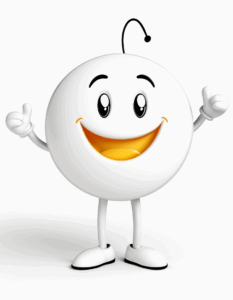When it comes to understanding ourselves, it’s astonishing how a personality disorder test can be a game changer. For parents going through the struggle of supporting a child facing addiction, these insights aren’t just academic—they’re a lifeline. For many, grappling with emotions or behavioral patterns can lead to feelings of hopelessness, especially when addiction enters the mix. A personality disorder test can help uncover underlying issues usually obscured by life’s chaos. So, let’s dive into the details of seven significant personality disorder tests and discover how they can guide you toward a better understanding of yourself and your loved ones.

7 Personality Disorder Tests to Consider for Self-Discovery
Understanding mental health is key. It’s about recognizing the elements that affect personal growth and daily living. Here’s a closer look at seven notable tests that can shine a light on your personality and potential challenges.
1. Millon Clinical Multiaxial Inventory (MCMI)
The Millon Clinical Multiaxial Inventory, or MCMI for short, is a widely recognized tool in clinical settings. This psychological assessment helps identify not only personality disorders but also various mental health symptoms. Usually, users will fill out a self-report questionnaire that takes about 25-30 minutes. For therapists working with families impacted by addiction, the MCMI can be invaluable for creating effective treatment strategies tailored to individual needs.
2. Minnesota Multiphasic Personality Inventory (MMPI-2)
Next up is the MMPI-2. Developed back in the 1940s, this test has undergone multiple updates to stay relevant. It’s one of the most comprehensive personality tests available, focusing on identifying depression and anxiety. With its varied scales, this test gives essential insights that can be particularly beneficial for parents concerned about emotional disturbances contributing to their child’s struggles with addiction.
3. Personality Inventory for DSM-5 (PID-5)
The PID-5 offers a modern take on personality disorders, aligning with contemporary DSM-5 diagnostic criteria. It assesses personality traits across five main areas: Negative Affectivity, Detachment, Antagonism, Disinhibition, and Psychoticism. The scores can highlight specific problem areas, which is invaluable for parents working alongside therapists to devise targeted treatment plans.
4. International Personality Disorder Examination (IPDE)
The IPDE is often conducted through interviews administered by trained professionals. It catalogues personality disorders based on both ICD-10 and DSM-5 criteria. For parents unsure of their child’s behavior, this test can help uncover essential personality traits, fostering understanding and compassion within the family.
5. NEO Personality Inventory (NEO-PI-R)
The NEO-PI-R assesses the Five-Factor Model of personality: Neuroticism, Extraversion, Openness, Agreeableness, and Conscientiousness. Although it isn’t specifically designed as a personality disorder test, understanding one’s score across these five traits can provide insight into potential disorders. For parents of children dealing with addiction, recognizing these traits can encourage discussions that lead to a deeper understanding of their loved one.
6. The Rorschach Inkblot Test
Let’s not overlook the classic Rorschach Inkblot Test. This unique tool examines how individuals interpret inkblots, revealing their thought processes and emotional states. While it’s not a traditional personality disorder test, the Rorschach can offer valuable insights into interpersonal dynamics and coping mechanisms, crucial for families previously unaware of these underlying challenges.
7. Beck Depression Inventory (BDI)
Finally, we encounter the Beck Depression Inventory. This tool is essential for those dealing with symptoms of depression that often overlap with personality disorders. By reflecting on feelings and attitudes related to depressive symptoms, this self-report scale can help pinpoint patterns for further exploration. For parents of children struggling with addiction, understanding these patterns can catalyze changes that lead to healing.

The Intersection of Personality Disorder Tests and Depression Tests
Digging deeper into mental health, it’s critical to note how these various assessments, including personality disorder tests and depression tests, intersect. Many of these tools reveal not just personality traits but also highlight symptoms of depression. Research shows a strong correlation between traits of Neuroticism, as indicated by the NEO-PI-R, and increased vulnerability to depression. Thus, recognizing these overlaps can guide parents in providing timely support to their children battling both addiction and mental health challenges.
For those worried about a loved one’s mental well-being, diving into these assessments isn’t just informative; it’s a necessary step toward understanding what’s happening beneath the surface. Imagine sitting around the dining table, eyes locked with your child as you discuss the outcomes of a personality disorder test. That connection can lead to breakthroughs and ultimately healing.
Taking Action: Navigating Your Mental Health Journey
Engaging with personality disorder tests requires courage and a willingness to engage in self-discovery. Think of this experience as a journey—a chance to explore your strengths and understand areas of vulnerability. For both you and your child, these assessments can transform how you perceive challenges. Armed with new insights, you can tackle issues related to addiction with greater understanding.
As you explore these resources, remember that information is just one piece of the puzzle. Embracing self-reflection, coupled with professional guidance, culminates in a comprehensive approach to mental wellness. So take that first step, and connect the dots, fostering a supportive environment for everyone involved. Understanding oneself may very well illuminate the path toward healing, resilience, and renewal.
In conclusion, embracing a personality disorder test can be more than an assessment; it’s an invitation to understand, grow, and transform. It’s about standing up to life’s challenges and saying, “I’m ready to learn about myself and my loved ones, and I’m here to fight for their health.” As we stand together, let’s harness the power of these insights, spreading compassion while giving hope in the face of addiction.
For more resources and support related to parenting through addiction, please check out our Lawrence Kansas county page. If you’re interested in the signs of mental health issues, be sure to explore our Signs Of postpartum depression article. And remember, addiction is complex, so if you wonder, can You get addicted To weed ? People have real experiences to share, and you are not alone.
Personality Disorder Test: Fun Facts and Trivia
Understanding yourself and others can be quite the journey, especially when exploring a personality disorder test. Did you know that personality disorders are more common than you think? Estimates suggest that around 9% of adults have some form of personality disorder. That’s like a full stadium of people! Speaking of numbers, it’s fascinating to note that many people get easily overwhelmed with social media pressures. For anyone thinking of making a change, knowing How To deactivate Facebook can be just the breather needed to focus on your health and well-being.
A Fun Look at Diagnostics
Ever wonder how actors get into character for big roles? The dedication often reminds us of how deep-rooted personality traits can be! Take the cast in The Expendables, for example; each actor brings a unique perspective, much like how each personality disorder entails a distinct set of traits and behaviors. Just as there are different approaches to acting, there are various types of personality disorder tests, ranging from self-report questionnaires to clinician-administered assessments. Each provides insights into the nuances of human behavior—a bit like trying to figure out which starter you’d choose in Pokemon Violet, with its own characters and options for growth Pokemon Violet Starters)!
The Importance of Awareness
Brushing up on these topics shows how vital awareness can be, especially for families affected by addiction. For instance, understanding personality disorders better can help those involved find the right resources, such as those offered by the Ohio board Of Pharmacy. Furthermore, speaking of wildlife, did you know that certain wild Animals can exhibit fascinating behavioral traits that resemble human personality disorders? These connections remind us just how intertwined life’s patterns can be (wild animals).
As we delve deeper, it’s crucial to remember the serious issues surrounding mental health. Research indicates that some individuals with untreated personality disorders can face dire consequences, sometimes even leading to tragedies like suicide by Doctors. Recognizing the signs and seeking help is vital, showing that a personality disorder test could indeed be life-changing. So, whether you’re looking to learn more for yourself or to help someone you care about, exploring these tests can open up new avenues for understanding and healing.




























